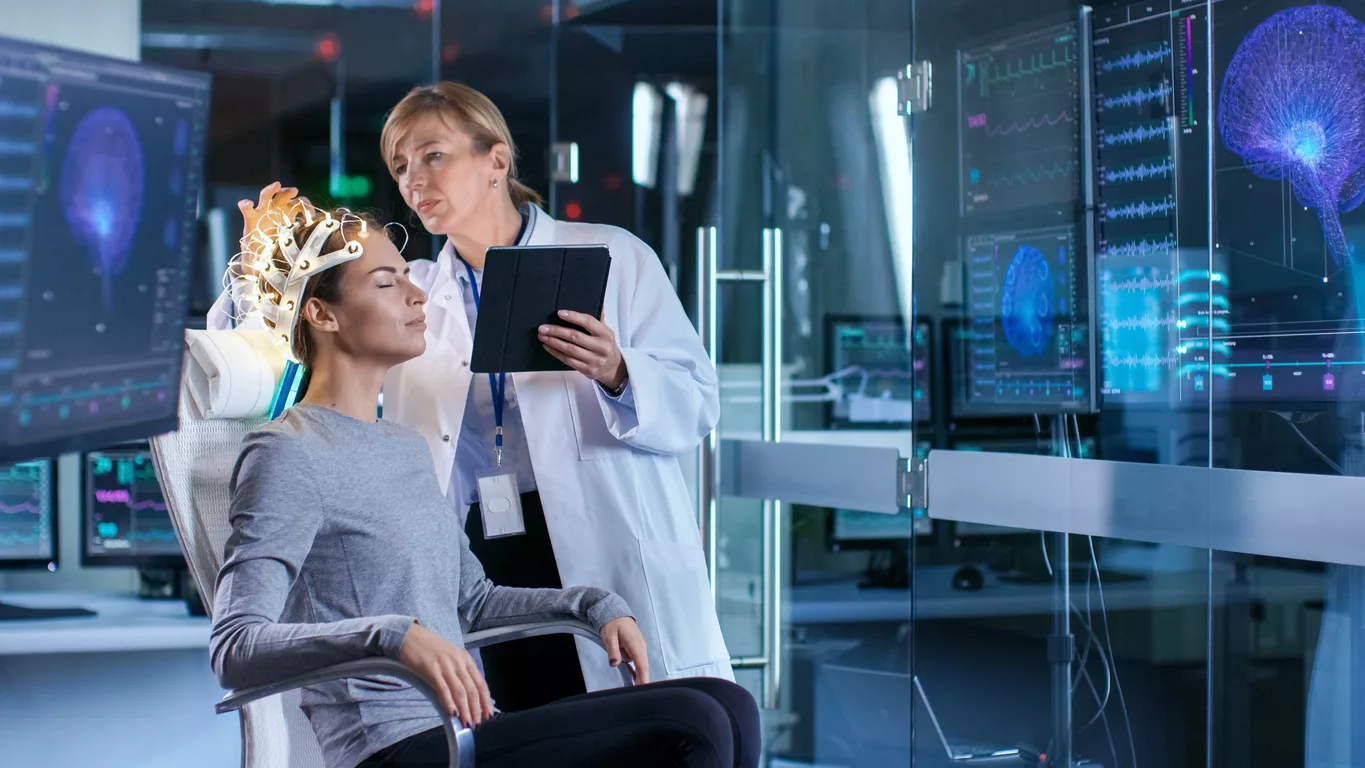2024-02-03

In the whirlwind of technological advancement, AI & ML in Neuropsychology stand at the forefront, revolutionizing how we understand and treat the complexities of the human mind and behavior. Notably, psychology and neuroscience, disciplines devoted to understanding the complexities of the human mind and behavior, are undergoing transformative changes. These technologies promise to unlock mysteries of the brain, offer unprecedented mental health solutions, and challenge our very notions of consciousness and identity. As we embark on this journey through the evolving landscape of AI and ML in these fields, we invite readers of all ages—from curious young adults to insightful elders—to explore the breathtaking potential and the ethical quandaries posed by these advancements.
The integration of AI and ML in Neuropsychology and neuroscience has marked the beginning of an era where the boundaries between human cognition and artificial intelligence blur. AI-driven algorithms are now capable of diagnosing mental health conditions with astonishing accuracy, sometimes even surpassing human experts. Machine learning models digest vast datasets—ranging from brain scans to behavioral patterns—to predict neurological disorders before they fully manifest, offering a window of opportunity for early intervention that was previously unimaginable.
However, the rapid pace of these technologies’ development and application raises significant ethical questions. Privacy concerns over sensitive psychological and neurological data, the potential for AI to misdiagnose or perpetuate biases, and the existential unease about machines understanding or even replicating human emotions are among the heated debates. This controversy serves as a critical reminder of the need for a balanced approach, where technological advancement is matched with stringent ethical standards and human oversight.
Looking ahead, the next 20 years promise even more radical changes. Imagine a world where AI not only aids in mental health diagnosis and treatment but also plays a central role in enhancing cognitive functions, potentially making learning faster and more efficient. We might see the emergence of AI companions capable of providing not just information but emotional support, challenging our concepts of companionship and therapy. Yet, this future also beckons with warnings: the risk of dependency on AI for emotional and cognitive needs, the loss of privacy, and the diminishing of human-to-human empathy and understanding.
One of the most groundbreaking advancements in the intersection of artificial intelligence, machine learning, and neuropsychology comes from the pioneering work of Elon Musk’s Neuralink. This project aims to develop ultra-high bandwidth brain-computer interfaces to connect humans and computers, potentially revolutionizing how we understand and treat neurological conditions.
Elon Musk’s venture into neural technology, Neuralink, represents a bold step forward in bridging the gap between the human brain and artificial intelligence. By implanting tiny electrodes into the brain, Neuralink proposes a future where individuals can communicate with computers or control them using thought alone. This technology is not just about enhancing human cognitive abilities; it’s about creating new pathways for treating a wide range of neurological disorders, from Parkinson’s disease to traumatic brain injuries and beyond.
The implications of Neuralink’s technology for the field of neuropsychology are profound. By enabling direct communication between the brain’s neural networks and external devices, we could see breakthroughs in how we diagnose and treat mental health conditions. The future of brain-computer interfaces like Neuralink is both exciting and uncertain. Imagine a world where AI can interpret neural patterns in real-time, offering insights into the brain’s functioning that were previously inaccessible. This could lead to more personalized and effective treatments for a range of psychological and neurological disorders, pushing the boundaries of what’s possible in mental health care.
As we contemplate the integration of Neuralink’s technology into neuropsychology, it also opens up a Pandora’s box of ethical considerations. The prospect of brain-computer interfaces raises questions about privacy, consent, and the potential for cognitive enhancement or manipulation. As such, it’s crucial for the neuropsychological community to engage in robust discussions about the ethical use of this technology, ensuring that advancements in AI and ML remain aligned with the principles of enhancing human well-being and autonomy.
For those intrigued by the pioneering efforts of Elon Musk’s Neuralink in bridging the gap between the human brain and computers, a visit to Neuralink’s official website offers a wealth of information directly from the source.
This evolution is a dual-edged sword. On one side lies the potential for a golden age of mental health care and understanding of the human brain, where no condition is too obscure to understand or too difficult to treat. On the other side is the risk that in our quest to engineer more intelligent machines, we overlook the essence of what it means to be human—our imperfections, emotional depth, and the unpredictable nature of human consciousness. The ethical implications of integrating AI into healthcare are profound and warrant careful consideration. The World Health Organization offers insight into the governance and ethical use of artificial intelligence for health, highlighting the importance of maintaining human rights and equity in the development of these technologies.
As we stand on the brink of this new era, it’s clear that AI and ML in Neuropsychology and neuroscience offer both incredible promise and profound challenges. The rapid development in these fields can indeed be scary, as it forces us to confront fundamental questions about identity, privacy, and the future of human cognition. Yet, it’s also an exciting testament to human ingenuity and the endless quest for knowledge. To navigate this complex landscape, we must proceed with caution, ensuring that as we push the boundaries of what’s possible, we remain guided by ethical considerations and a commitment to enhancing human well-being. The journey of integrating AI and ML into the fabric of psychology and neuroscience is just beginning, and its direction will be shaped by the choices we make today.
To explore the intersection of AI, ML, and neuroscience further, engaging presentations by experts are invaluable. This collection of TED Talks on the brain includes discussions on the latest research in neuroscience and the potential for future innovations, offering accessible insights into complex topics.
While the advancements in AI and ML offer fascinating insights into the future of healthcare and neuropsychology, at Thought Wise, we focus on the human element of mental health care. Our dedicated team of professionals is here to provide personalized and compassionate care, utilizing a blend of traditional and innovative therapy techniques tailored to meet your unique needs.
We understand that the journey to mental well-being is deeply personal, and while technology can offer tools, the human connection remains irreplaceable. Explore our range of services, from psychological assessments to personalized therapy plans, and discover how we can support you in your journey towards mental wellness.

ThoughtWise Clinical Psychology and Neuropsychology provides quality services that guide treatment, enrich life, and enhance our overall mental health and cognitive abilities in Jacksonville and throughout the state of Florida. On their blog, they share insightful tips on managing and improving mental health and clarity in day to day life.

Contact us today to see if Thought Wise and our clinical psychologists are the right fit for your needs.